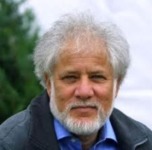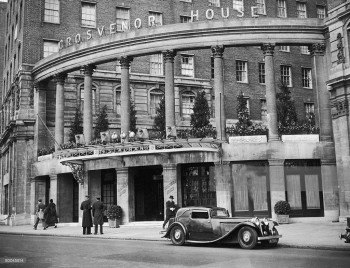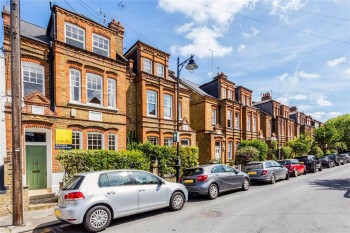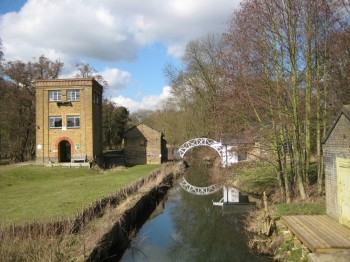Note: Michael Ondaatje was WINNER of the Booker Prize for The English Patient 1992), WINNER of the Prix Medicis etranger and the Giller Prize for Anil’s Ghost (2007), and WINNER of the Governor General’s Award of Canada (2007).
“If our mother had ever thought to phone us from wherever she was, we would no doubt have lied cautiously and said everything was fine, not mentioning the strangers who happened to be crowding into the house at that moment. They did not in any way resemble a normal family, not even a beached Swiss Family Robinson. The house felt more like a night zoo, with moles and jackdaws and shambling beasts who happened to be chess players, a gardener, a possible greyhound thief, a slow moving opera singer…”
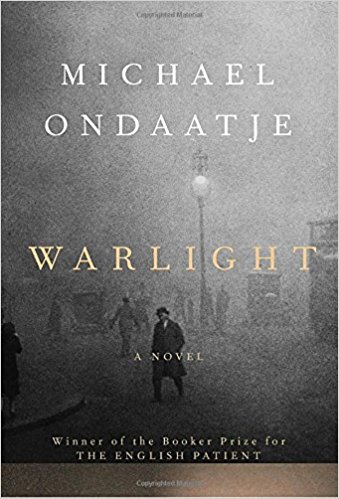 As Nathaniel Williams, age fourteen, makes these comments to the reader, he is dealing with the absence of both of his parents as World War II and the aftermath of the blitz are paramount in England. His father has purportedly been promoted to take over the Asian office of Unilever. His mother, who plans to join him, stays behind with the children in London for the summer, sharing stories with Nathaniel and his fifteen-year-old sister Rachel about her early life growing up in rural Suffolk. Also living in the house is a lodger named Walter, whom the children nickname The Moth, a man absent much of the time, though he appears at their house in Ruvigny Gardens, occasionally, when their mother is away. She has known The Moth for a long time and has worked with him as a “fire watcher” on the roof of the Grosvenor Hotel during the war. One night The Moth regales the two children with stories of his mother’s skill during a night drive during the war, “when she had delivered men down to the coast through the darkness of the curfew to something called the Berkshire unit.” On another occasion he tells about their mother intercepting German messages and transmitting them across the English Channel from the “Bird’s Nest” on top of the Grosvenor House Hotel.
As Nathaniel Williams, age fourteen, makes these comments to the reader, he is dealing with the absence of both of his parents as World War II and the aftermath of the blitz are paramount in England. His father has purportedly been promoted to take over the Asian office of Unilever. His mother, who plans to join him, stays behind with the children in London for the summer, sharing stories with Nathaniel and his fifteen-year-old sister Rachel about her early life growing up in rural Suffolk. Also living in the house is a lodger named Walter, whom the children nickname The Moth, a man absent much of the time, though he appears at their house in Ruvigny Gardens, occasionally, when their mother is away. She has known The Moth for a long time and has worked with him as a “fire watcher” on the roof of the Grosvenor Hotel during the war. One night The Moth regales the two children with stories of his mother’s skill during a night drive during the war, “when she had delivered men down to the coast through the darkness of the curfew to something called the Berkshire unit.” On another occasion he tells about their mother intercepting German messages and transmitting them across the English Channel from the “Bird’s Nest” on top of the Grosvenor House Hotel.
When the school year is about to start again in September, their mother disappears, supposedly for Singapore to meet their father. The children remain behind with an assortment of characters like those mentioned in the opening quotation, along with many more at Christmas – the Darter, a former boxer, who may have spent time in jail; a strange piano player; a bee keeper who uses a bee “smoker” as a weapon; Olive, the Darter’s girlfriend, an ethnographer and geographer; and Agnes, Nathaniel’s first, much older, girlfriend. Various characters who appear at their house take the children on night trips to abandoned sites and other “haunted” places in the city; and one summer Nathaniel spends many nights helping the Darter on a mussel boat from which he delivers greyhounds for “jubilantly illegal” racing.
Over the course of a long year, these experiences, the disappearance of some of the characters, Nathaniel’s growing separation from his sister, and his conviction that he saw his mother for an instant at a jazz club, lead him to question these times in his life. These take on much more significance for the reader when a brief, but very dramatic, episode changes the whole tenor of the novel, just short of the halfway point. In a mere four pages, told with journalistic efficiency, Nathaniel and Rachel, along with many of the main characters, face extreme danger for reasons unclear, perpetrated by people unknown. Despite its brevity, this dramatic scene forms the bridge to Part II, which takes place in 1959, when Nathaniel is twenty-eight, still trying to make sense of the seeming randomness of the events of his teen years, while working to understand the relationships of the characters, their back stories and secret histories, all of which affect him now in adulthood and make him who he has become.
Like Nathaniel, the reader, too, has more questions than answers. The events which occurred when Nathaniel was in his mid-teens were never clarified, and after thirteen years, some of Nathaniel’s memories have faded while others have taken on personal importance which they may not deserve. The remainder of the novel becomes Nathaniel’s search for answers – the same answers the reader also seeks in order to give coherence to the novel itself. Much of the ensuing “action” evolves through flashbacks, which the author presents in new contexts. Nathaniel now works as an archivist for the British Intelligence Foreign Office, and spends weekends and vacations in a house he has bought in rural Suffolk, in the same town where he and his mother vacationed during his teen years. It is a special house for him, one owned now by the widow of Sam Malakite, for whom Nathaniel used to work during summers and who became a second father to him. His mother, however, is still a mystery, and he hardly knows where to start as he explores the government archives to unearth any projects she may have been involved in and the people with and for whom she worked.
Gradually, Ondaatje revisits and exploits virtually every detail from the first half of the novel, along with every strange character, every seemingly insignificant event, every question which arose in his early years, and every peculiar memory which remains unexplained. Few tangible records remain, either in the family memorabilia or in the intelligence records. Some characters who played little or no part in Part One take on added importance as the book evolves and some of the mysteries begin to be solved. The enigmatic Rose, Nathaniel’s mother, proves to have had a very busy life, and Rachel, his sister, has a secret life which does not become clear until the end of the novel. As Nathaniel remarks to the reader, “We never know more than the surface of any relationship after a certain stage, just as those layers of chalk, built from the efforts of infinitesimal creatures, work in almost limitless time.” Later he expands on this idea: “We order our lives with barely held stories. As if we have been lost in a confusing landscape, gathering what was invisible and unspoken…sewing it all together in order to survive, incomplete…” A superbly crafted novel with much to say about memories and the way we order life itself – high on my Favorites list for 2018.
ALSO by Ondaatje: THE CAT’S TABLE
Photos. The author’s photo appears on https://www.ibs.it/
The Grosvenor House Hotel (ca. 1935), where Nathaniel’s mother Rose and The Moth worked as “fire watchers” during the war. www.gettyimages.co.uk/
Ruvigny Gardens in London, where the family lived during the war and where Nathaniel and Rachel lived with an assortment of unusual care-givers in its aftermath. https://www.onthemarket.com/
The Waltham Abbey and gunpowder mill which Nathaniel and the Darter visited regularly to transport greyhounds. https://www.essexghosthunters.co.uk/
